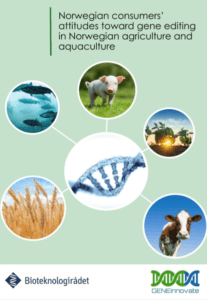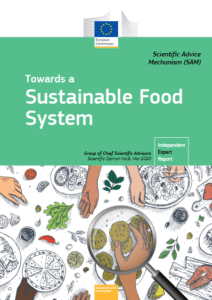NEWS
Stay updated on the latest developments in plant science policy and EPSO activities!
Genome editing: Improving legislation and starting flagships to better address climate, environmental, food and health challenges
2nd Informal meeting in Brussels 24.1.2020
Brussels, 24.4.2020
On 24 January 2020 EPSO invited tandems of member-scientists and policy makers from a dozen countries across Europe to a second open-minded, informal meeting to assess the situation for research and development on New Plant Breeding Technologies (NPBTs) after the ruling of the ECJ in July 2018.
The difficulties in the implementation of the ruling, the possible need for changes to present legislation and the status of activities in different member states and associated countries were discussed. Flagship projects with potential field releases were a further point of consideration. There shall be a follow up meeting in autumn 2020.
As explained in our statement of 19.2.2019, EPSO offers to collaborate with policy makers to develop an appropriate future-ready regulation to enable the European public sector, small- and medium-sized companies and farmers to contribute more comprehensively to food and nutritional security and to use all available tools to reduce the environmental impact of agriculture. Notwithstanding the technical option retained, EPSO supports a science-based revision of the present European legislation establishing a more proportionate product-based risk assessment. EPSO is also willing to contribute to the societal debate on genome editing and to communicate in a fact-based and yet accessible manner about innovative plant science and its societal role.
Ralf Wilhelm, Ernst van den Ende and Karin Metzlaff
Contacts:
- Ralf Wilhelm, JKI / DE and co-chair EPSO Agricultural Technologies WG
- Ernst van den Ende, WUR / NL and EPSO Board member
- Alan Schulman, LUKE / FI and EPSO President
- Karin Metzlaff, EPSO Executive Director
RESPONSE DP is offering 7 early-stage researcher’s positions for 36 months (100%) at the interface of science and policy, as well as science and innovation at one of the three world-leading academic host organization – ETH Zurich, University of Zurich or University of Basel.
RESPONSE DP will train ESRs to reflect on their role as scientists in society, contributing with evidence to policymaking and to build capacities to address global challenges in the areas of sustainable food systems, sustainable energy systems and sustainable land use decisions.
For more information about RESPONSE, open positions and further steps (i.e. submit your application), have a look at: https://www.plantsciences.uzh.ch/en/research/fellowships/response.html
The majority of Norwegian consumers are positive about sustainable and societally beneficial use of gene editing in Norwegian agriculture and aquaculture – this is the main conclusion from the population survey performed and published by the Norwegian Biotechnology Advisory Board early April 2020. However, many consumers are concerned about risk, although they have fairly high confidence that gene edited products approved by the Norwegian authorities are safe for health and the environment. Consumers also want information about product traits that makes it easier for them to choose. The results also show that there is a need for knowledge building about genetic technology and food in the general population.
EPSO encourages scientists and ministries to work together to perform similar studies in more countries across Europe to engage with consumers, compare the attitudes towards gene editing and its use to address societal challenges. Sigrid Bratlie, one of the authors, is happy to share the methodology and preparatory work to help you.
Read the full report at www.bioteknologiradet.no/filarkiv/2020/04/Report-consumer-attitudes-to-gene-editing-agri-and-aqua-FINAL.pdf .
Contacts:
- Sigrid Bratlie, Special Advisor on gene technology, The Norwegian Agricultural Cooperatives, [email protected]
- Odd Arne Rognli, EPSO Board
- Karin Metzlaff, EPSO
This science advice will inform the development of the ‘Farm to Fork’ strategy to be published this year (originally in spring) and all actions related to sustainable food systems under the ‘European Green Deal’ and beyond.
The group ‘urges the European Commission to take the lead and drive change towards a sustainable food system in the EU and beyond. We specifically recommend that environmental, social and economic sustainability are made the central objectives of all policies relevant to the food system. Food must be viewed more as a common than a consumer good, as has been the tendency in the past. In more detail, we call on the European Commission to:
- Ensure a fully integrated approach to bring about a sustainable food system by adopting an active step-wise policy transition with responsive, learning-focused policy approaches and governance structures;
- Address power and information asymmetries in the food system by increasing the policy focus on food manufacturers and retailers, supporting a food environment that helps citizens to make healthy and sustainable food choices, and strengthening the more vulnerable actors in the food system;
- Use a well-balanced policy mix in an iterative, responsive and adaptive manner, considering binding policy measures as the main drivers.’
For plant scientists this is relevant as plant research and innovation can contribute as intrinsic part of crop improvement, crop management and crop processing towards sustainable food systems.
Contact for plant science contributions: Karin Metzlaff (EPSO Executive Director), Alan Schulman (EPSO President), Ulrich Schurr (EPSO Vice-President)
Source:
Towards a sustainable food system – EC website:
- Letter to Commissioner Gabriel by the Chair of the Group of Chief Scientific Advisors – Rolf Heuer – Sustainable food system (March 2020)
- Scientific opinion – Sustainable food system (March 2020) informed by SAPEA Evidence Review Report (March 2020)
The European Commission has published a Question&Answer on Covid19 and food safety.
It presents answers on the following areas: Risk of infection through food; Food production; Food at home, Member States recommendations, and Other sources of information.
Two examples
What is the risk of COVID-19 infection from food products?
Despite the large scale of the pandemic, there has been no report of transmission of COVID-19 via consumption of food to date. Therefore, as stated by the European Food Safety Authority1 , there is no evidence that food poses a risk to public health in relation to COVID-19. The main mode of transmission for COVID-19 is considered to be from person to person, mainly via respiratory droplets that infected people sneeze, cough or exhale.
Can I do something myself at home to minimise any potential risk from food conveying the virus responsible for COVID-19?
Yes. First, washing thoroughly your hands (See ECDC tutorial on Effective Hand-Washing8 ) with soap and warm water before and after shopping is particularly important as it will protect yourself as well as others. It is equally important to apply strictly the hygiene rules in your kitchen, that usually protect you from food poisoning. Store your food properly (any contact between the food consumed raw and cooked food must be avoided), discard outer packaging before storage (for example cardboard outers where there is an inner plastic package) while keeping track of key information such as maximum duration limits. Systematically wash fruits and vegetables with clean water, especially if they are not going to be cooked (COVID-19 will not survive cooking).
Avoid contamination by kitchenware (knifes, plates, etc.) by carefully washing them with detergent in between using them for different food ingredients. Respect cooking instructions (time, temperature) for food intended to be eaten cooked. Wash your hands with warm water and soap before you start preparing or cooking food, as well as after having prepared food. Fridge and kitchen surfaces should be cleaned routinely, though with increased frequency. The precautions against COVID-19 should not make you forget the classic rules to avoid food poisoning when you cook at home that still apply and which protect you from foodborne illnesses that would further burden the healthcare facilities.

